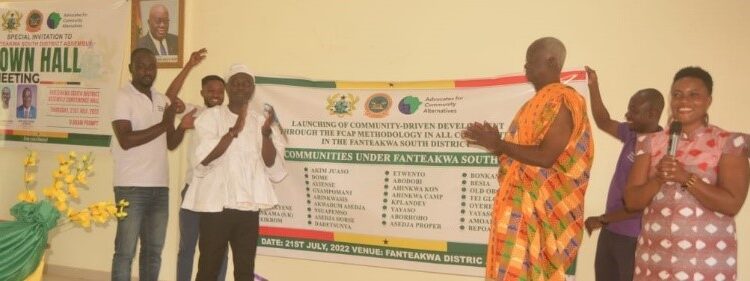Published by the Daily Times
Advocates for Community Alternatives (ACA), a non-profit making organisation, is spearheading the implementation of Facilitated Collective Action Process (FCAP) in all the 34 key towns in the Fanteakwa South district as part of efforts to deeply involve communities in the planning and execution of development projects.
In partnership with the Fanteakwa South District Assembly, FCAP is being implemented as a community driven development tool that keeps decision-making and community development in the hands of the local community members.
It was adopted by ACA from ‘Spark Micro-grants’, a partner NGO in East Africa (Uganda, Rwanda, Burundi and Congo), and is currently the development pattern used by the Rwandan government to develop the country.
FCAP takes a maximum of three years in each partner community to fully implement a project, and has three main phases, namely planning, implementation and post-implementation.
Pilot cases
For over a year now, ACA been piloting this process in two communities in the Fanteakwa South district, namely Juaso and Nsuapemso, in partnership with the Assembly.
Following the success of the application of FCAP in these areas, ACA has extended its coverage to all 34 communities of the district on a 60-40 percent deal. ACA will provide 60% of micro grant, which is the cedi equivalent of $9,000.00, in all 34 communities of the district while the district Assembly takes up the remaining 40%.
Launching the FCAP at a town hall meeting held recently at Osino, the district capital, the Community Development Manager of ACA responsible for West Africa, Nana Ama Nketia Quaidoo, said it was extremely important for intended beneficiaries of every development project to be deeply involved from the scratch rather than just putting up the project for them.
“If you have any intent of executing any development for me, engage me and let me determine what I want. So, you don’t just wake up and decide that you want to build a hospital, or school or a chapel when I, the intended user/beneficiary, don’t know anything about it,” she explained.
“How did you know that I need a chapel? What makes you think that the location of the market is at the preferred place? These are some of the issues that hinder effective local governance in Ghana and Africa,” she again said.
Madam Nketia Quaidoo observed that successive governments sometimes tout their achievements by mentioning a lot of infrastructural projects executed without knowing that the supposed beneficiaries do not seem to resonate with these projects because they were not involved in their implementation.
This, she further explained, informed ACA’s decision to adopt the Facilitated Collective Action Process, which deeply involves the people in the planning and execution of any project in their community and avoids white elephant projects.
She expressed the hope that FCAP will help drive community-driven approach in project implementation while reducing the impacts of mining on the local people.
Read about Advocates for Alternatives on the News via https://dailystatesman.com.gh/ngo-supports-development-in-fanteakwa/

Recent Comments